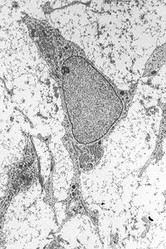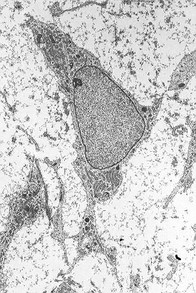Adult stem cells (ASCs) are one of the three main types of stem cells used by researchers, with the other two being embryonic and induced pluripotent stem cells. As implied by their name, adult stem cells are found in juvenile and adult individuals. Their main role is to rejuvenate dyeing cells and to repair damages induced either by trauma or by disease. For instance, in humans millions and millions of cells (e.g. blood, intestine and skin cells) die from ageing each passing day. These cells are continuously refreshed with new cells derived from adult stem cells, and this is why we stay alive.

What are adult stem cells
by KakashiNar
Adult stem cells are one of the three main types of stem cells , with the other two being embryonic and induced pluripotent stem cells. Come and read more about them.
Adult Stem Cell types
There are many different types of adult stem cells (ASCs), found in many different organs and tissues. In most cases, ASCs can develop only into the cells of the originating tissue/organ, which is also used to classify them in different categories. There are numerous types of ASCs and scientists believe that we have yet to found them all. Below you will find a brief coverage of the most “popular” ASCs types.
Bone Marrow Stem Cells
The bone marrow tissue actually contains three different types of adult stem cells. These are :
- Mesenchymal stem cells (MSCs)
- Hematopoietic stem cells (HSCs)
- Endothelial stem cells
Mesenchymal stem cells are responsible for forming skeletal cells, specifically chondrocytes (cartilage-forming cells), osteoblasts (bone forming cells) and adipocytes (fat cells). Hematopoietic stem cells are responsible for all the cells found in our blood, for instance platelets, T-Cells, B-Cells, natural-killer cells. Finally, endothelial stem cells develop into endothelial cells, which in turn form the endothelium which lines the inner surface of blood vessels and lymphatic vessels.
Neural stem cells
These cells are mainly found in the brain and spinal cord. Their main role is to create all the different types of neural cells (neurons) and also two other non-neural cells call astrocytes and oligodendrocytes
Intestinal stem cells
These stem cells produce the cells that line the surface of the small and large intestines. They are mainly found in a small type of intestinal glands called the "crypts of Lieberkuhn
FDA- approved adult stem cell treatments
As of 2013, the FDA-approved treatments involving adult stem cells are very limited. The best known such treatment is called hematopoietic stem cell transplantation and has been carried out for more than 30 years. The treatment is typically used to restore the the HSCs population of a patient that had it previously destroyed. The vast majority of these patients are cancer-victims who received chemotherapy and/or radiation treatment.
What does the future hold for adult stem cells ?
Today the future of ASCs for the treatment of various conditions seems to be brighter than ever. There is a lot of research currently running on a preclinical level (animal studies) and there have been even some positive and promising results on small human trials as well.
In short, researchers believe that ASCs will soon be used in the treatment of the following conditions:
- Osteoporosis/Osteoarthritis (using mesenchymal stem cells)
- Heart failure (using stem cells found in cardiac tissue)
- Various eye diseases using corneal stem cells. Many patients since 2003, have regained their vision using this type of stem cell
- Neurodegenerative conditions including Parkinson's and Alzheimer's
- Tissue/organ regeneration. In 2008 Paolo Macchiarini transplanted the first human organ (a trachea) that was solely grown using adult stem cells. Since then, he has carried out more than 5 similar surgeries and he believes that he and his team will be able to created even more complicated organs.
Great video explaining the difference between embyonic and adult stem cells
You might also like
Bless You and Gesundheit - Why Do We Say This When People Sneeze?Have you ever wondered what bless you and gesundheit means and why people say...
Ways Native Plants Can Help Control Invasive PlantsPlanting or growing native plants can help to control invasive plants in nume...




 Dog Training: Essential Equipmenton 12/14/2016
Dog Training: Essential Equipmenton 12/14/2016
 12 of the World's Weirdest Animalson 11/30/2014
12 of the World's Weirdest Animalson 11/30/2014
 Promachoteuthis sulcus: Strange Squid with human like teethon 04/10/2014
Promachoteuthis sulcus: Strange Squid with human like teethon 04/10/2014
 Autologous Matrix Induced Chondrogenesison 04/10/2013
Autologous Matrix Induced Chondrogenesison 04/10/2013


Comments